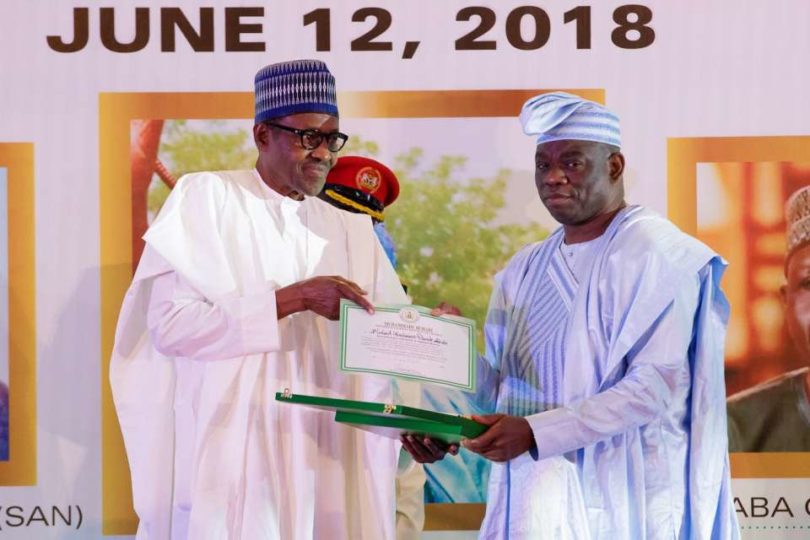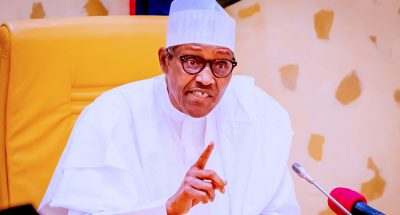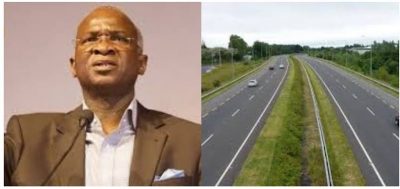As his death in the hands of a military dictator became imminent, the onetime Pakistani prime minister, Ali Bhutto, said, “I am not afraid to die. I am not afraid to see God. I will tell God that I raised Pakistan from the ashes to the throne.” At death, as Moshood Abiola saw God, he must have told God that with his life of rags to riches, he exemplified the boundless capabilities of the human will and spirit. That he transcended the primitive tendencies of ethnic bigotry and religious intolerance, and embraced all Nigerians. That he dealt a blow on that foremost social injustice – Hausa/Fulani monopoly grip of political power – in Nigeria, and established a precedence that any Nigerian, irrespective of ethnicity, can aspire to and be elected to the highest office in the land.
And that he heightened the political consciousness of an entire country, and won a victory for the hitherto impotent masses that can now, in their new found confidence, walk head-high, knowing that the people are the repository of power, and that the terror of the gun cannot extinguish the awakened aspirations of the people.
It was most magnificent that President Mohammadu Buhari posthumously recognised the political legacy of Moshood Abiola and his contributions to Nigerian unity and democracy. He conferred the highest national honour, GCFR, on Abiola and changed the date for the nation’s Democracy Day from May 29 to June 12th because “June 12 was far more symbolic of democracy in the Nigerian context than May 29”. For these wonderful gestures, like so many other Nigerians, I am very grateful to President Mohammadu Buhari.
With the desperate poverty that marked his earlier life contrasted with the exalted position he attained in his lifetime, the life story of Moshood Abiola is the stuff for a legend. For it is only in legends and fables that such stupendous change in one’s fortune is a platitude. Levitating from such raw-dirt poverty to prodigious affluence and great renown inevitably demanded suffering, struggle and sacrifice. Struggle and suffering build character and inner strength, and edify the mind. They teach the individual to be still in the face of the most daunting challenges of life, to be cool under heat, and to be calm even in the eye of the storm. They teach patience, tolerance and sensitivity to the needs and feelings of others, and that every man, even the dispossessed, discarded destitute deserves to be treated with respect.
No wonder, he shunned the elitism and arrogance of the rich and famous, and identified with the aspirations of the dispossessed. No wonder, he was the most generous Nigerian philanthropist of all times. His open handedness was legendary. With his capacious-hearted generosity, he crisscrossed the country touching lives and meeting the needs of people. His benevolence knew no bounds; it was totally indifferent to tribal, religious and sectional divides.
He bestrode all national divides; he was a national figure – a quintessential presidential material. It is important to note that the Nigerian constitution was painstakingly crafted to facilitate the election of national figures – unifying forces – to the Nigerian presidency. With a political appeal that spilled across religious and tribal confines, he won a decisive victory in the most transparent and credible presidential election in the history of Nigeria. Inherent in that electoral triumph was his ability to unify what was for long a fissiparous electorate, given to voting along tribal, religious and regional lines. Even, with his Moslem/Moslem ticket, which ordinarily would have automatically ruined the prospect of any presidential ticket in Nigeria, Christians still voted for him en-masse.
The annulment of the June 12th election by that megalomaniac, despotic intriguer, Ibrahim Babangida, was a shameless display of raw, arrogant, brute power, and mindless ethnic chauvinism. It was a repudiation of the collective will of the people. It smacked squarely in the face of justice, equity and merit. In honouring Abiola and designating June 12 as Nigeria Democracy Day, President Buhari acknowledged and addressed a monumental historical wrong. He validated the struggle by Nigerians for the restoration of the June 12 mandate. He invariably recognised and paid tribute to the dead, maimed and scarred in that struggle for democracy. He made significant strides in reconciling all Nigerians and in healing wounds from the past.
Some Nigerians are opposed to the honouring of Abiola and have thus are criticising Buhari for it. Some argue that Abiola was a flawed character that got what he deserved; that the annulment of the June 12th election was therefore not totally unwarranted. Others contend that the president’s gesture has a political undertone; that it was done to curry Yoruba electoral support for the upcoming 2019 presidential election. Well, we all have flaws, and like all men, Abiola had his frailties. Moreover, great historical figures sometimes come in “tortuously complicated forms”, but that does not mar the splendour of such great figures or diminish the import of their contributions to history.
Secondly, June 12 goes beyond ethnicity. It is about justice, principles and morality. To give a tribal connotation to the president’s gesture is tantamount to hollowing June 12, a historical milestone that should be hallowed. It was not just the Yoruba that voted for Abiola and stood up to defend the June 12 mandate but the majority of all Nigerians. The president did something that many Nigerians found most refreshing, and there is nothing wrong with it, even, if it is political ploy to win Yoruba votes in the upcoming 2019 presidential election. Just as there is nothing wrong with business moves being motivated by profit, there is nothing wrong with a political move being motivated by votes.
Interestingly, Presidents Olusegun Obasanjo, Umaru Yar’Adua and Goodluck Jonathan had the opportunity to honour Abiola, and harvest whatever political bonanza that was to attend it, but they choose not to. So, to President Buhari that honoured Abiola and immortalised June 12, I say thank you.
*Ezukanma wrote in from Lagos.




